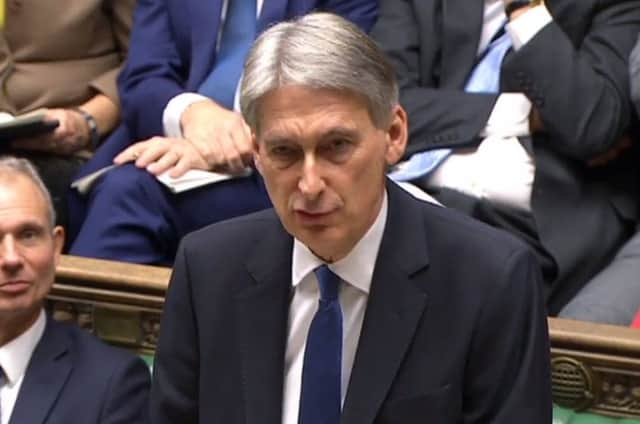Ewan MacDonald-Russell: Economic impact finite due to devolution


The revisions to economic growth and the consequent impact on the public finances will define politics across the UK for the next five years.
From a retail perspective, the Chancellor’s warnings around lower growth and risks to consumer confidence are sobering for businesses who are already facing trading headwinds. The figures show consumption growth has been revised down to 1.2 per cent in 2017. That’s not surprising when the OBR predicts real consumption wage growth to fall to 0.1 per cent next year.
Advertisement
Hide AdAdvertisement
Hide AdTo the Chancellor’s credit he isn’t avoiding the issue. A focus on improving productivity is a sensible approach to keeping the economy competitive. Improved GDP-enhancing physical and digital infrastructure will bring real benefits to retailers, customers, and workers.
It’s also essential to help businesses with the increased costs of higher wages. He did, however, miss an opportunity to stimulate private sector investment, the best guarantor of long-term sustainable growth, by failing to tackle the government-imposed cost burden that firms face.
However, due to devolution the impact of the Autumn Statement on the Scottish economy is finite. Scottish Finance Minister Derek Mackay will now be aware of the parameters he will be setting his Budget to next month.
He will face a difficult balancing act. His priority must be encouraging both consumer and business confidence. The UK government is investing in improving competitiveness in English cities, and the Scottish Government must make sure Scotland doesn’t fall behind.
For retailers, the major concern must be the potential effect of changes to personal tax. With household incomes flat, council tax rising and a real risk of inflation, there is a real concern that consumer spending might be eroded next year. We would therefore urge the Scottish Government to rule out any further increases in personal tax, beyond those previous announced.
However, it’s also crucial there are tangible steps to demonstrate Scotland is an attractive investment opportunity. The simplest way to do that would be to reverse last year’s damaging decision to double the large business supplement. We would also like to see retailers receive a fair portion of the Apprenticeship Levy revenues they have paid, and a further commitment to develop both physical and digital infrastructures.
l Ewan MacDonald-Russell is head of policy at the Scottish Retail Consortium